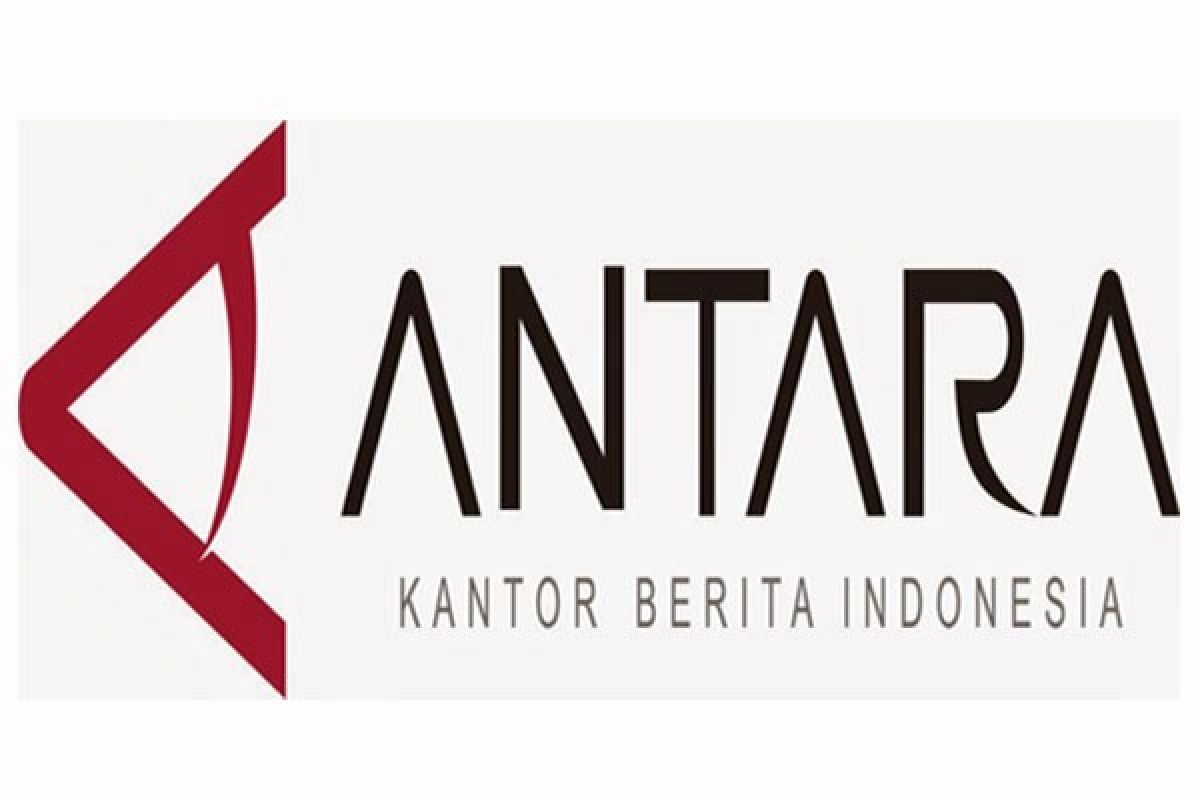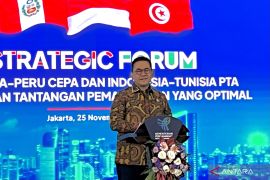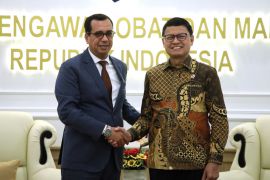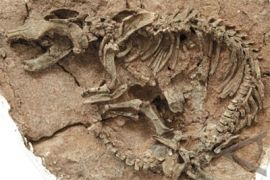"In the second round of negotiation, Indonesia and Tunisia have agreed on finalization of PTA draft text," Director of Bilateral Negotiation of the Trade Ministry Ni Made Ayu Marthini said in a statement here on Thursday.
Marthini stated that both delegations have the same spirit to finalize the negotiation as it would encourage businessmen in both countries to increase bilateral trade.
The talk is a follow up of the first round of negotiation held in Tunis, Tunisia, on June 25 and 26.
The Indonesian delegates were led by Marthini, while the Tunis delegates were led by the Director of Cooperation with Arab and Asian Countries, Ministry of Commerce, Chedli May.
In the second round negotiation, both delegations approved all clauses in the draft text of PTA. Furthermore, they would focus on discussion on access to the market, which include request list and draft text of rules of origin (RoO).
Both delegations would exchange data on tariff and list of products to be requested for tariff reduction. The negotiation of PTA is expected to be finalized by the end of the year.
After the second round of negotiation, the two countries would continue to communicate and exchange data on trade, tariff, and draft RoO before the negotiation would be proceeded to its third round.
"This is important so that the PTA negotiation could be finalized in its third round, which is scheduled to be held in November or December 2018," she noted.
Previously, Indonesia`s Trade Minister Enggartiasto Lukita, on June 25, led a trade mission to Tunisia and opened the Indonesia-Tunisia PTA negotiations.
Tunisia is a potential non-traditional market for Indonesia in northern Africa. The mission has opened the opportunity for Indonesia to export its major products to Tunisia, such as tuna fish, spices, coffee, toiletries set, home decor, and jewelries.
The total bilateral trade in 2017 has amounted to US$88 million, where Indonesia enjoyed a surplus of $22.4 million. During the period, Indonesia`s export to Tunisia has reached $55 million and import reached $32.7 million.
The exported commodities are coconut oil, palm seed, yarn, oxygen-function amino-compounds, and synthetic filament yarn.
The main imports from Tunisia during the period were dates, phosphonate, electric wares, insulated cables, and non-forged aluminum.
Reporting by Sella Panduarsa Gareta
Editing by Sri Hariyati, Yoseph Hariyadi
Reporter: Antara
Editor: Andi Abdussalam
Copyright © ANTARA 2018






